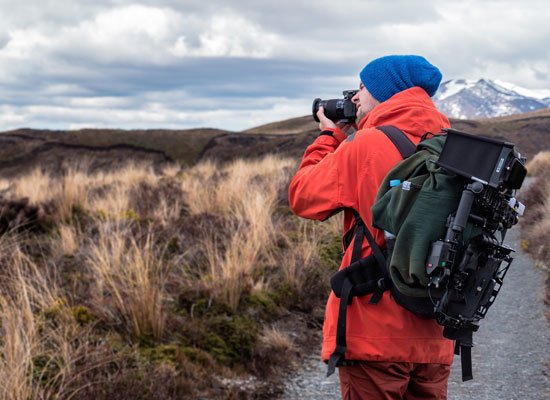|
Getting your Trinity Audio player ready...
|
“Traveling opens up a world of possibilities and experiences, but it also demands careful planning and consideration. Whether you’re a seasoned explorer or preparing for your first international adventure, understanding the nuances of travel is essential. Travel resources, such as guides, websites, and personal recommendations, serve as valuable companions in crafting unforgettable journeys. While there’s no one-size-fits-all ‘best’ travel source, trusted platforms like TripAdvisor and Lonely Planet can provide invaluable insights. As you embark on your adventure, remember to pack essentials like passports, tickets, and travel insurance. Travel is a diverse endeavor, encompassing leisure, business, adventure, culture, and education. Its benefits are vast, from personal growth to cultural enrichment. Moreover, travel plays a pivotal role in tourism, boosting economies and fostering global exchange. So, whether you’re seeking inspiration, exploring India’s diverse landscapes, or venturing internationally for the first time, the world of travel is waiting to be discovered. Embrace it responsibly, mindfully, and with a spirit of curiosity and wonder.”
- Why are travel resources important? Travel resources are crucial because they provide information, guidance, and support to travelers. They help individuals plan their trips effectively, find the best destinations, discover local culture, and ensure a safe and enjoyable experience. These resources can include travel guides, websites, apps, and advice from experienced travelers.
- What is the best travel source? The best travel source can vary depending on individual preferences and needs. Some popular travel sources include reputable travel websites like TripAdvisor and Lonely Planet, travel blogs, travel agencies, and personal recommendations from friends and family. The best source is one that provides reliable information tailored to your specific travel goals.
- What things are used for Traveling? Traveling requires various items, depending on the destination and type of travel. Common essentials include passports, tickets, accommodation reservations, clothing appropriate for the climate, toiletries, travel insurance, a travel bag or suitcase, electronic devices, and important documents like visas and travel itineraries.
- What is travel and types of travel? Travel is the act of moving from one place to another, often for leisure, exploration, business, or educational purposes. Types of travel include leisure travel (vacations), business travel (for work-related purposes), adventure travel (exploring nature or extreme activities), cultural travel (to experience different cultures), and educational travel (for learning and research).
- What are 5 benefits of traveling? Traveling offers numerous benefits, including broadening one’s horizons, experiencing different cultures, improving interpersonal skills, reducing stress, and creating lasting memories. It can also boost creativity and provide opportunities for personal growth.
- What is the importance of travel in tourism? Travel is the backbone of the tourism industry. Tourism thrives on people’s desire to explore new places, cultures, and experiences. It generates revenue, creates jobs, and fosters cultural exchange, making it a vital component of many economies worldwide.
- What are the three benefits of traveling? Three key benefits of traveling are personal growth and self-discovery, the opportunity to learn about different cultures, and relaxation and stress relief. Travel can broaden your perspective, increase your knowledge, and provide a break from the routine of daily life.
- What is the benefit of travel management? Travel management refers to the process of efficiently planning and organizing business travel for companies. Its benefits include cost savings, compliance with travel policies, improved traveler safety, and better control over travel expenses.
- What is the importance of traveling in education? Traveling is a valuable educational tool as it allows individuals to learn firsthand about history, geography, cultures, and traditions. It enhances classroom learning, fosters independence, and encourages critical thinking and problem-solving.
- How travel is a source of inspiration? Travel can inspire people in various ways. It exposes them to new environments, cultures, and perspectives, sparking creativity and innovation. Travel experiences often lead to personal growth, new interests, and a broader outlook on life.
- Which travels are best in India? India offers a wide range of travel experiences. Some of the best travels in India include exploring the historical treasures of Rajasthan, experiencing the scenic beauty of Kerala’s backwaters, visiting the spiritual city of Varanasi, and trekking in the Himalayas.
- What is the safest source of travel? Generally, air travel is considered one of the safest modes of transportation due to strict safety regulations and modern aircraft technology. However, safety can also depend on factors like the airline’s reputation, the destination, and the traveler’s precautions.
- What are the 5 means of travel? The five primary means of travel are by air, road, rail, water (including sea and river travel), and walking/hiking. Each has its advantages and is chosen based on factors like distance, convenience, and purpose.
- What are the three types of travel? The three broad types of travel are domestic travel (within one’s own country), international travel (across borders), and intercontinental travel (travel between continents). These categories encompass various travel purposes and experiences.
- What are the 6 components of travel? The six components of travel often include transportation, accommodation, activities and attractions, food and dining, travel insurance, and travel documentation (such as visas and passports). These elements collectively make up a traveler’s itinerary.
- Which is the No 1 tourist place in India? India has numerous popular tourist destinations, but the top choice often varies by personal preference. Some of the most visited places in India include the Taj Mahal in Agra, Jaipur’s historic sites, the backwaters of Kerala, and the spiritual city of Varanasi.
- What is very famous in India? India is famous for its rich cultural heritage, diverse cuisine, spiritual traditions, historical monuments, and natural beauty. Iconic elements such as yoga, Bollywood films, the Taj Mahal, and the Himalayan mountain range are well-known worldwide.
- Why is India famous for tourism? India’s fame in tourism is due to its incredible diversity. It offers a blend of historical, cultural, and natural attractions, along with a warm and welcoming hospitality culture. The country’s traditions, festivals, and cuisine also contribute to its popularity among travelers.
- Which Indian state has the best tourism? India has several states known for their exceptional tourism offerings. Rajasthan is renowned for its historical palaces and forts, Kerala for its backwaters and lush landscapes, Goa for its beaches, and Himachal Pradesh for its scenic mountains and trekking opportunities.
- Why is travel education important? Travel education is vital as it promotes cultural understanding, empathy, and global awareness. It exposes individuals to different perspectives and helps break down stereotypes. Additionally, travel education fosters curiosity and a love for lifelong learning.
- What should you have for international travel? For international travel, you should have a valid passport, appropriate visas, travel insurance, local currency, essential medications, a copy of your travel itinerary, travel adaptors, and any required vaccinations. It’s also advisable to carry a photocopy of important documents.
- How do I prepare for travel abroad? To prepare for travel abroad, research your destination, obtain necessary travel documents, create an itinerary, book accommodations and transportation, pack appropriate clothing and essentials, inform someone of your plans, and stay informed about local customs and regulations.
- How do you travel internationally for the first time? When traveling internationally for the first time, start by choosing a well-documented destination, obtaining the required visas and vaccinations, booking a guided tour if needed, and staying in reputable accommodations. Familiarize yourself with local customs and keep your travel documents secure.
- How can I save for international travel? To save for international travel, create a travel budget, cut unnecessary expenses, open a dedicated savings account, set up automatic transfers, look for travel deals and discounts, and consider additional income streams or part-time work.
- What is the 50 30 20 rule? The 50/30/20 rule is a budgeting guideline that suggests allocating 50% of your income to needs (essential expenses like housing and utilities), 30% to wants (non-essential spending like entertainment and dining out), and 20% to savings and debt repayment.
- What is the 3X emergency rule? The 3X emergency rule suggests saving at least three times your monthly expenses as an emergency fund. This fund is intended to cover unexpected expenses, such as medical bills or car repairs, without causing financial hardship.
- What are the 1st 3 things you do in an emergency? In an emergency situation, prioritize safety by assessing the situation, calling for help (e.g., 911 or emergency services), and administering first aid if necessary. Evacuating or finding shelter may also be essential depending on the nature of the emergency.
- What is the significance of travel reviews and ratings? Travel reviews and ratings provide valuable insights from other travelers. They help you make informed decisions about accommodations, restaurants, and activities, ensuring a more enjoyable travel experience.
- How can you travel sustainably? Sustainable travel involves reducing your environmental impact while exploring the world. You can do this by choosing eco-friendly accommodations, using public transportation, minimizing plastic usage, and supporting local communities.
- What are the essential safety tips for solo travelers? Solo travelers should prioritize safety by sharing their itineraries with someone they trust, staying in well-lit and secure accommodations, keeping important documents secure, and being cautious when interacting with strangers.
- What are the advantages of traveling off-season? Traveling off-season often means fewer crowds, lower prices, and a more authentic experience. You can enjoy popular destinations with less congestion and better availability of accommodations and tours.
- How do you deal with travel anxiety or fear of flying? Travel anxiety can be managed by practicing relaxation techniques, such as deep breathing or meditation, seeking professional help if needed, and educating yourself about the safety of air travel.
- What is the role of travel insurance? Travel insurance provides financial protection in case of unexpected events like trip cancellations, medical emergencies, or lost luggage. It offers peace of mind during your travels.
- What are some tips for budget travel? Budget travel tips include booking flights and accommodations in advance, cooking your meals or eating at local, affordable eateries, using public transportation, and avoiding unnecessary splurges.
- How can you make the most of a limited travel budget? To maximize a limited budget, consider staying in budget-friendly accommodations like hostels, using cashback and rewards credit cards, researching free or low-cost attractions, and planning your trip during shoulder seasons.
- What are some cultural etiquette guidelines for travelers? It’s important to research and respect the cultural norms of the destination you’re visiting. This includes appropriate dress, greetings, and customs related to gift-giving and communication.
- What are some top travel trends for the current year? Travel trends can vary from year to year, but some recent trends include sustainable travel, wellness tourism, remote work and travel, and a focus on immersive, experiential travel.
- What are some safety tips for traveling in unfamiliar places? When traveling in unfamiliar places, stay vigilant by staying aware of your surroundings, keeping your belongings secure, avoiding risky areas at night, and seeking advice from local authorities or reliable sources.
- What are the benefits of guided tours vs. independent travel? Guided tours offer the convenience of having an expert guide and a structured itinerary, while independent travel allows for more flexibility and a personalized experience. The choice depends on your preferences.
- How can you minimize the environmental impact of your travels? Travelers can reduce their environmental impact by using reusable water bottles and bags, conserving energy and water in accommodations, and supporting eco-friendly tour operators and businesses.
- What is the importance of cultural sensitivity when traveling? Cultural sensitivity is essential to avoid inadvertently offending locals and to promote positive interactions. It helps travelers engage respectfully with different cultures and fosters cross-cultural understanding.
- What are some common travel scams and how can you avoid them? Common travel scams include taxi scams, pickpocketing, and overpriced souvenirs. To avoid them, research common scams in your destination, use reputable transportation options, and be cautious with personal belongings.
- How can you maintain a healthy lifestyle while traveling? To stay healthy while traveling, prioritize regular exercise, maintain a balanced diet, stay hydrated, get enough sleep, and carry any necessary medications or medical supplies.
- What are some tips for traveling with children or pets? Traveling with children or pets requires additional planning. Ensure you have necessary documents and vaccinations for pets, pack entertainment and comfort items for children, and choose family-friendly accommodations.
- How can you make the most of a short weekend getaway? Weekend getaways can be enjoyable by choosing destinations within a short travel time, planning activities in advance, and making the most of your limited time by prioritizing must-see attractions.
- What are some unique travel experiences that people should try at least once? Unique travel experiences can include volunteering abroad, staying with locals through homestays, embarking on a road trip, attending cultural festivals, and exploring remote or lesser-known destinations.
- What is the significance of travel journals or blogs? Travel journals and blogs allow travelers to document their experiences, share valuable insights, and inspire others to explore new destinations. They also serve as personal mementos of memorable trips.
- How can you stay connected while traveling internationally? To stay connected while traveling abroad, consider purchasing local SIM cards or international data plans, using Wi-Fi at accommodations and public places, and downloading helpful travel apps.
- What are some tips for responsible wildlife tourism? Responsible wildlife tourism involves maintaining a safe distance from animals, not disturbing their natural habitats, and supporting conservation efforts through ethical wildlife tours and sanctuaries.
- How can you practice mindful and sustainable travel? Mindful and sustainable travel involves minimizing your environmental impact, respecting local cultures, supporting local economies, and leaving destinations in a better state than you found them. It encourages responsible and conscious exploration of the world.





